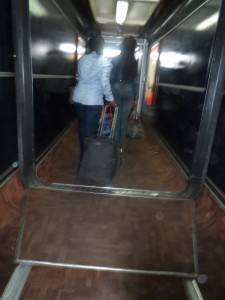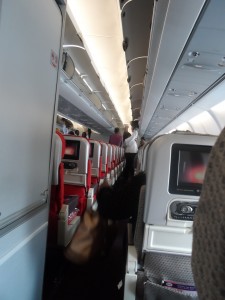Ọjọ́ ti pẹ́ ti Yorùbá ti ńkúrò ni ilú kan si ilú keji, yálà fún ọrọ̀ ajé tàbi fún ẹ̀kọ-kikọ́. Ni ayé àtijọ́, ọjọ́ pípẹ́ ni wọn fi ńrin irin-àjò nitori irin ti ọkọ̀ òfúrufú lè rin fún wákàtí kan, lè gba ọgbọ̀n ọjọ́ fun ẹni ti ó rin, tàbi wákàtí mẹrin fún ẹni ti ó wọ ọkọ̀-ilẹ̀ igbàlódé. Eyi jẹ ki à ti gburo ẹbi tàbi ará ti ó lọ irin àjò ṣòro, ṣùgbọ́n lati igbà ti ọkọ̀ irin àjò ti bẹ̀rẹ̀ si wọ́pọ̀ ni à ti gburo ara ti bẹ̀rẹ̀ si rọrùn nitori Olùkọ̀wé le fi iwé-àkọ-ránṣé rán awakọ̀ si ọmọ, ẹbi àti ará ti ó wà ni olú ilú/agbègbè miran tàbi Òkè-òkun.
Yorùbá ni “Iṣẹ́ ajé, sọ ọmọ nù bí òko”. Ki ṣe ọmọ nikan ni iṣẹ́-ajé sọnù bi òkò ni ayé òde oni, nitori ọkọ ńfi aya àti ọmọ silẹ̀; aya ńfi ọkọ àti ọmọ silẹ́, bẹni òbi ńfi ọmọ silẹ̀ lọ Òkè-òkun fún ọrọ̀ ajé. Ẹ̀rọ ayélujára àti ẹ̀rọ-isọ̀rọ̀ ti sọ ayé dẹ̀rọ̀ fún àwọn ti ó wá ọrọ̀ ajé lọ ni ayé òde oni, lati gburo àwọn ti wọn fi silẹ̀.
ENGLISH TRANSLATION
It has been a long time that Yoruba people having been leaving one town to another, either for trade or for acquiring education. In the olden days, movement from one place to another often takes a long time because the journey that could be covered by the aeroplane within minutes would take like thirty days for someone travelling by foot or four hours travelling by car. This made communication with those abroad difficult for friends and family, but since the improvement of transportation communication has become easier since one can send letters through commercial drivers to family members in other cities.
Yoruba adage said, “Working for survival throws away the child like a stone”. Nowadays, not only the child is thrown out like stone, as husband leave their wife and children in pursuit of economic gains; women also leave husband and children; parents abandon their children to travel abroad for economic reasons. However, the Internet and the telephone has made communication with the family left behind easier.
Originally posted 2014-03-18 22:54:12. Republished by Blog Post Promoter




